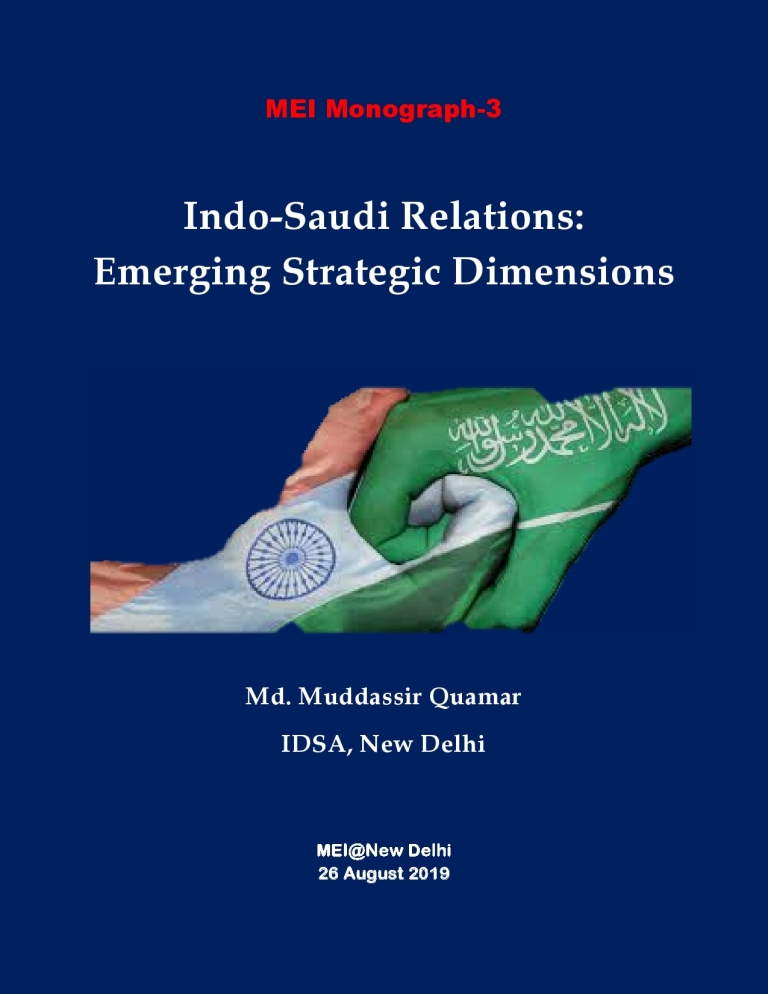Breaking
- MENU
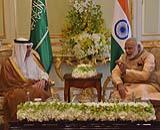
Recent developments in Afghanistan–the US military withdrawal and return of Taliban– has created security concerns for all regional countries in South and West Asia. Not least because of the possible instability in Afghanistan and the fear of escalation in jihadist violence but also because of the doubts created about US reducing its regional commitments. This means that the regional countries will have to work together to counter the threats emanating from an unstable Afghanistan. Therefore, India is exploring the possibility of cooperation with likeminded countries including Saudi Arabia and United Arab Emirates.
Both Saudi Arabia and UAE are important regional partners of India in the Gulf and broader Middle East. Unlike in the past, both have come to see the Taliban as a major security threat not only for Afghanistan but for the wider region. For one, the Taliban has a history of giving refuge to Al-Qaeda which eventually led to the later planning and executing the September 11 attacks in the US. Eventually, this became the undoing for the Taliban regime, but the likelihood of both Taliban and Al-Qaeda to revive their partnership and begin from where they had left off in 2001 cannot be underestimated.
The evolving situation in Afghanistan is bound to create challenges for India both in terms of security dilemmas and its commitments towards stability and prosperity of Afghanistan. Taliban are an unfriendly force for New Delhi and they are too closely linked to the Pakistani establishment for India to trust the group. Hence, despite some positive comments by Taliban leaders, the view in India is that New Delhi needs to be circumspect in engaging the group. At the same time, New Delhi has made no bones of working with any Afghan group and regional and international partners who are committed to the security and stability of Afghanistan and the wider Southwest Asia region. In fact, India has already made formal and informal contacts with Taliban and the regional actors involved in Afghanistan.
However, the question for India is to evolve a larger policy vis-à-vis Afghanistan and the Taliban regime without ruling out the possibility of a fast deterioration of political and security situation in the country. While many would like to rule out any role for the US in Afghanistan’s future, and this may seem to be true in the prevailing situation, it is unlikely that Afghanistan’s future can be determined without any role for the US and its western allies. India, therefore, needs to keep the short, medium and long terms scenarios in mind while devising its Afghanistan policy and explore the possibility of engaging the likeminded countries to safeguard its interests.
Currently, the players which are actively involved in Afghanistan include China, Pakistan, Russia, Qatar, Iran and Turkey who are engaging the Taliban to maximize their influence over the group. While Qatar and Turkey have been providing technical support to Taliban to run the Hamid Karzai International Airport in Kabul, Pakistani hands have been visible the way the interim Taliban government has taken shape. China and Russia are engaging the Taliban leadership to make them attuned to their security concerns as well as exploit economic opportunities. Iran, which has been engaging sections of Taliban for years, is weighing its options within the context of its security interests.
For India, the situation is much more complicated given that it finds itself isolated in Afghan geopolitics. Given the current status of bilateral relations with Pakistan and the threat perception vis-à-vis China, the possibility of cooperation with Islamabad or Beijing on Afghanistan is ruled out. Turkey’s lack of sensitivity towards India’s domestic issues makes it difficult to engage it in Afghanistan. That leaves India with the option of engaging with Russia, Iran and Qatar. However, in all three cases, the bilateral, regional and global geopolitical situation demands New Delhi to be circumspect.
The recent surge in New Delhi’s diplomatic exchanges with Riyadh and Abu Dhabi underlines the fact that these two form an important part of Indian calculus on Afghanistan. Saudi Arabia and UAE have come a long way from being the only countries other than Pakistan to recognize the Taliban regime in the late 1990s. Both have not only eschewed their engagement with Taliban but also recognize the security threats posed by jihadi terrorist groups including al-Qaeda and Islamic State. Post-September 11, both have partnered with the US on the ‘war on terror’ in the Middle East and since the Arab uprisings of 2010-11, the two Gulf countries have been at the forefront in fighting and countering radical Islamism.
In Afghanistan, both Saudi Arabia and UAE, like India, are concerned with similar threat perception. The fear of the Taliban reviving Afghanistan as the hub for regional and transnational terrorism looms large in India, Saudi and Emirati understanding. One might recall that the spectrum of contemporary global jihadism has its roots in Afghan jihad and Taliban was one of the major factors in terrorist groups, such as al-Qaeda, Lashkar-e-Taiba and Jaish-e-Mohammed, finding safe havens in Afghanistan.
Notably, the statements by Saudi Arabia’s Foreign Minister, Prince Faisal bin Farhan, during his media interactions while on a two-day (19-20 September 2021) visit to New Delhi clearly indicated that the Saudi concerns and threat perceptions vis-à-vis Taliban are similar to the Indian concerns and threat perceptions. Not surprising therefore that Afghanistan is high on the agenda of Prince Faisal’s first official visit to India. As per the Indian Ministry of External Affairs, the discussion between Prince Faisal and Indian External Affairs Minister, Dr S Jaishankar, included Afghanistan among other regional issues. Prince Faisal also called on Prime Minister Narendra Modi, while National Security Advisor Ajit Doval too had a meeting with the visiting Foreign Minister.
The fact that India and Saudi Arabia have in recent years significantly enhanced their security and defence partnership makes it clear that they would be working closely to deal with the possible security threats emerging from a Taliban-led Afghanistan. Although, in the immediate to medium term, they are likely to remain on the fringe of Afghan geopolitics, this may not remain the situation in the long run.
Note: This article was originally published in Financial Express on 20 September 2021 and has been reproduced with the permission of the author. Web Link
As part of its editorial policy, the MEI@ND standardizes spelling and date formats to make the text uniformly accessible and stylistically consistent. The views expressed here are those of the author and do not necessarily reflect the views/positions of the MEI@ND. Editor, MEI@ND: P R Kumaraswamy

Md. Muddassir Quamar is an Associate Fellow in Manohar Parrikar Institute for Defence Studies and Analyses, New Delhi. He holds a Ph.D. in Middle East studies from Jawaharlal Nehru University and his doctoral thesis focused on social dynamics in Saudi Arabia in the context of the tensions between two seemingly non-harmonious trends; Islamization and modernization. He has a broader interest in Gulf societies, political Islam, Middle East geopolitics and India’s relations with the Middle East. He has co-authored two books India’s Saudi Policy: Bridge to the Gulf (Palgrave Macmillan, 2019) and Persian Gulf 2019: India’s Relations with the Region (Palgrave Macmillan, 2020). He is currently working on a manuscript on education reforms in Saudi Arabia. He has co-edited four anthologies, including Changing Security Paradigm in West Asia: Regional and International Responses (Knowledge World, 2020), Political Violence in MENA (Knowledge World, 2020), Islamic Movements in the Middle East: Ideologies, Practices and Political Participation (Knowledge World, 2019) and Contemporary Persian Gulf: Essays in Honour of Gulshan Dietl, Girijesh Pant and Prakash C. Jain (Knowledge World, 2015). His research papers have appeared in leading international journals such as Asian Affairs, Strategic Analysis, India Quarterly, Contemporary Arab Affairs, Digest of Middle East Studies, Journal of Arabian Studies and Journal of South Asian and Middle Eastern Studies. As part of his project in MP-IDSA, Dr. Quamar authored a monograph on Erdogan’s Turkey: Politics, Populism and Democratisation Dilemmas. Since 2018, he has served as the Book Review Editor for Strategic Analysis, the flagship journal of MP-IDSA published in association with Taylor & Francis. In May 2020, he edited an MEI Monograph Middle East Fights Covid-19: A Fact Sheet with contributions from students pursuing Masters in IR in JNU. He regularly contributes Op-Ed articles on developments in the Persian Gulf, Middle East and India’s relations with the region for Indian and international forums. In 2014-15, he was a Visiting Fellow at the King Faisal Center for Research and Islamic Studies, Riyadh. Dr. Quamar has been associated with the Middle East Institute, New Delhi, in various capacities since its foundation and serves as Associate Editor of its flagship journal, the Contemporary Review of the Middle East published by Sage, India.
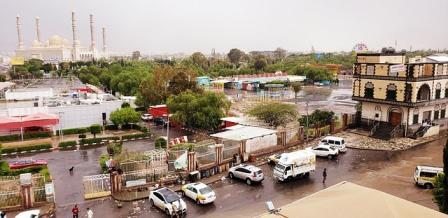
On January 17, 2022, the United Arab Emirates (UAE) was rocked by two attacks after drone attacks ta.....

Within a span of just over a year since the announcement of the Abraham Accords, between Israel and .....
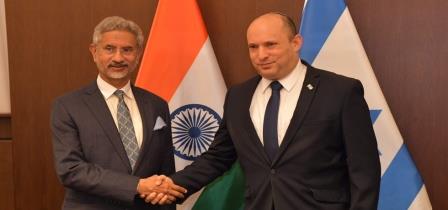
External Affairs Minister S. Jaishankar’s visit to Israel signifies the burgeoning Indo-Israel.....
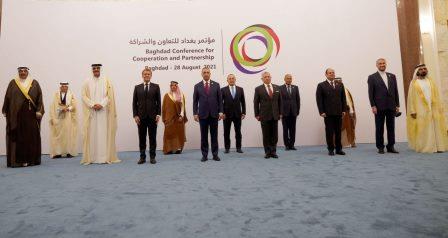
On 28 August 2021, Iraq hosted the first “Baghdad Conference for Cooperation and Partnership&r.....
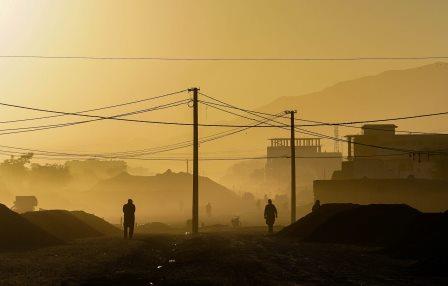
The Taliban takeover of Afghanistan has wider ramifications for the world. Among the key questions t.....
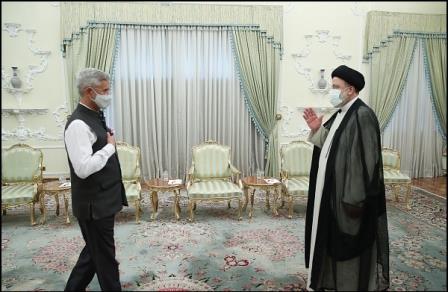
External Affairs Minister S. Jaishankar attended the swearing-in ceremony of the new Iranian preside.....
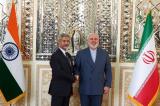
The revitalisation of ties with Iran will remain confined to the immediate issue of shared interests.....

Israel and Hamas have engaged in fighting each other since 2006 when Hamas emerged victorious in the.....

Tensions have gripped the Eastern Mediterranean (East Med) for the past few months owning to differe.....
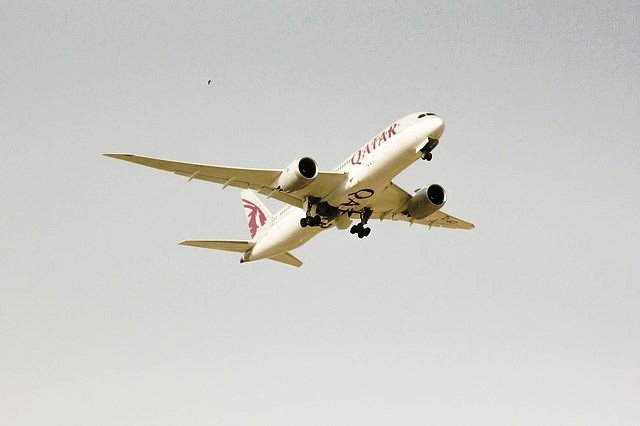
Qatar is an important country in the Gulf with which India has traditionally had strong bilateral ti.....
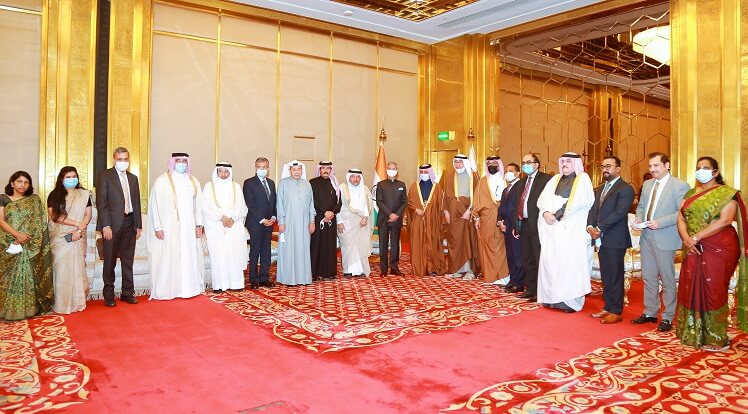
International geopolitical developments and the growing chances of friction between the global power.....
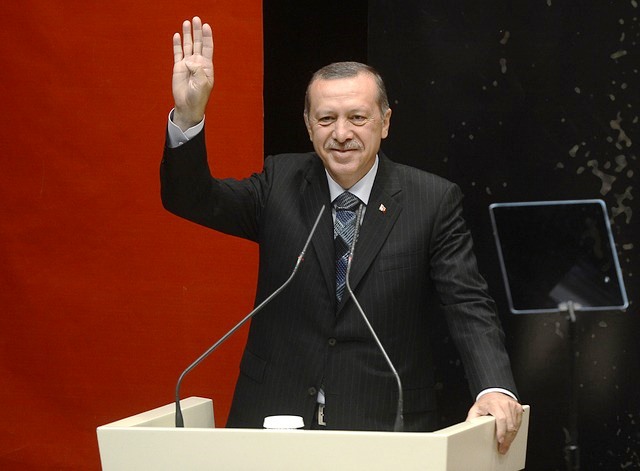
In recent years, Turkey’s foreign policy has attracted scrutiny because of its aggressive post.....

India and the United Arab Emirates share a vision for peace and prosperity. Under the leadership of .....
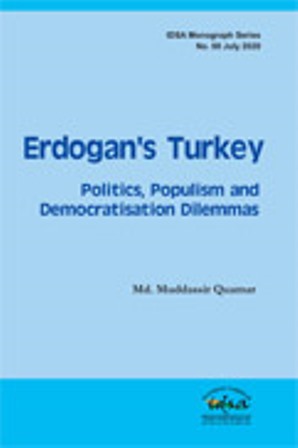
The coming to power of the AKP is one of the defining moments in the history of modern Turkey. Here .....

Though the news of China and Iran entering into US$400 billion agreement and Iran going ahead with C.....
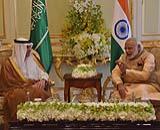
India’s relationship with the Gulf has witnessed a qualitative transformation since the August.....

The results of country-wide municipal elections in Turkey held on 31 March 2019 threw a few surprise.....

Like other parts of the world, West Asia (or the Middle East) too is hit hard by the spread of COVID.....
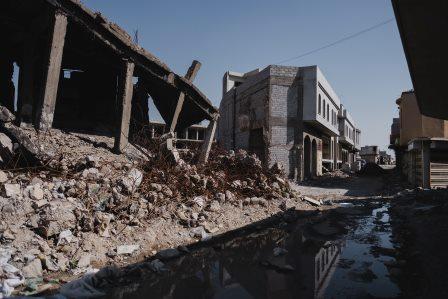
Iraq is suffering from internal divisions and external interventions for long. The problems of the p.....

The West Asia is one of the most volatile and conflict-ridden regions in the world today. Given the .....
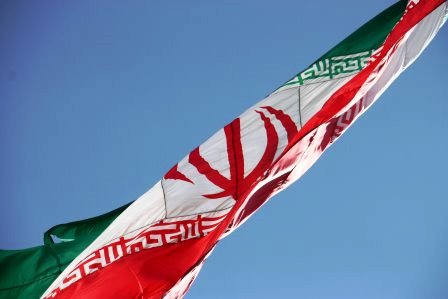
In the Persian Gulf, the New Year began with a bang. On January 3, the world woke up to the news of .....

Major General Qassem Soleimani, commander of the elite Quds Force of the Iranian Revolutionary Guard.....

For over two months, youth in Iraq are protesting against corruption, unemployment and Iranian and A.....

The historic relations between India and the Gulf countries have undergone a qualitative transformat.....
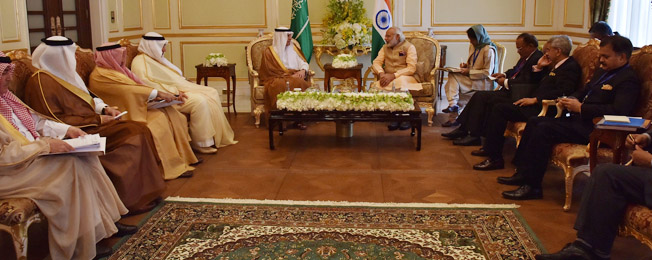
India and Saudi Arabia enjoy traditional friendly ties. Both are strategic partners and are working .....
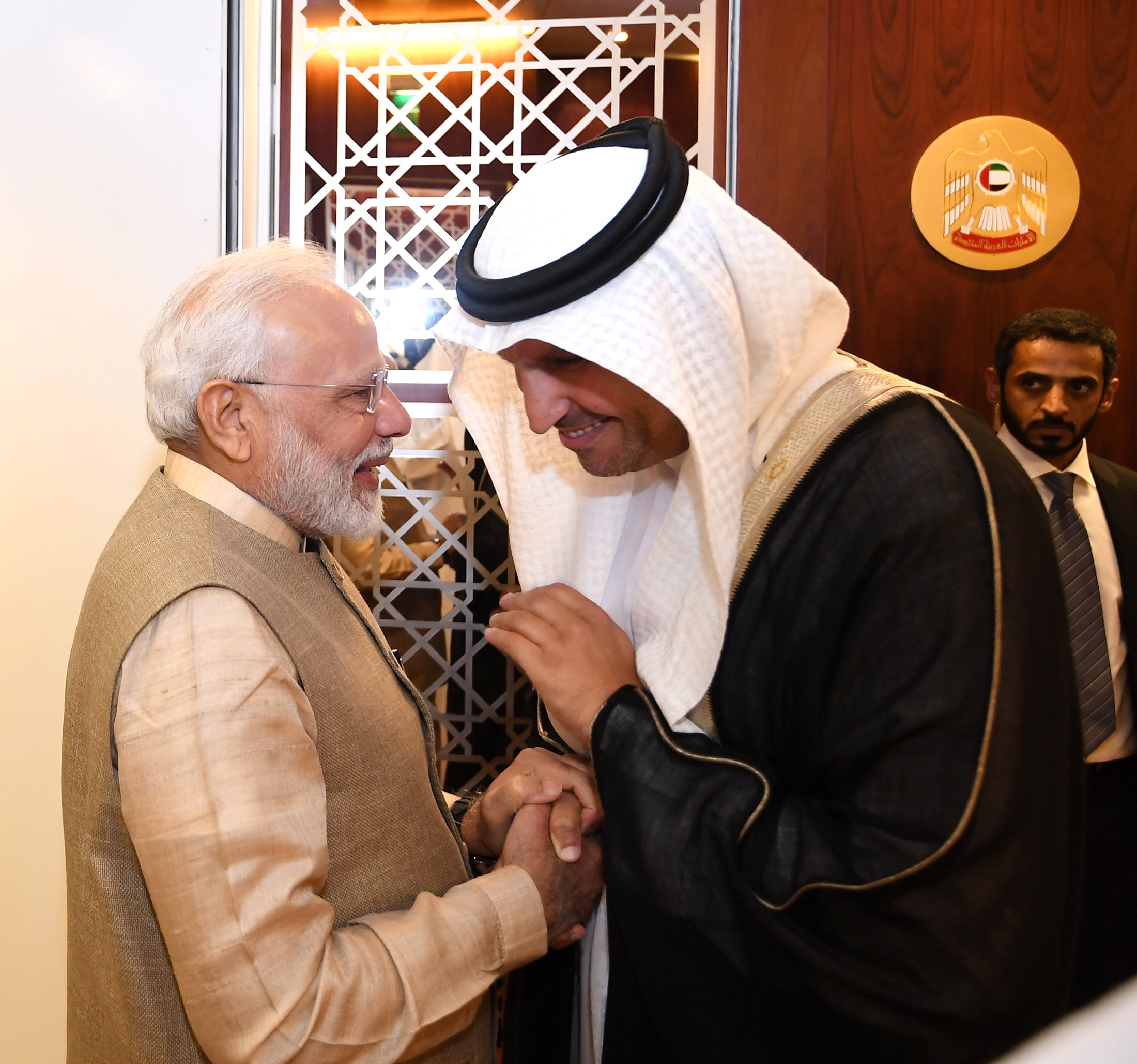
Prime Minister Narendra Modi undertook a visit to the UAE and Bahrain over the weekend. This was his.....
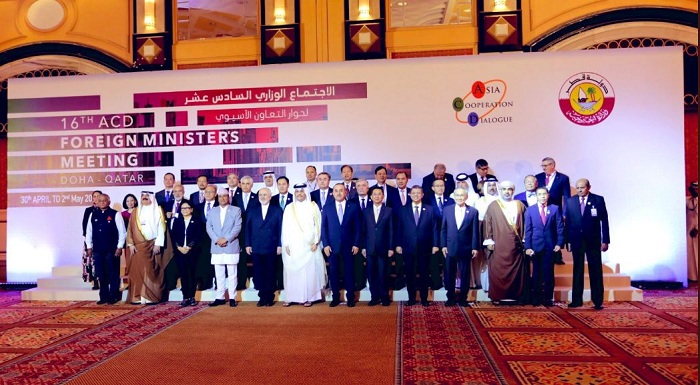
The 16th Ministerial meeting of the Asia Cooperation Dialogue (ACD) took place in Doha this week. Th.....
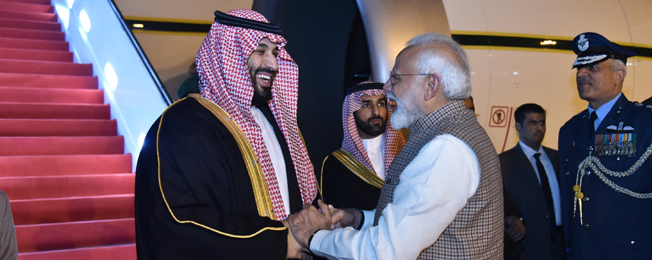
India’s relationship with the Gulf has witnessed a qualitative transformation since the A.....
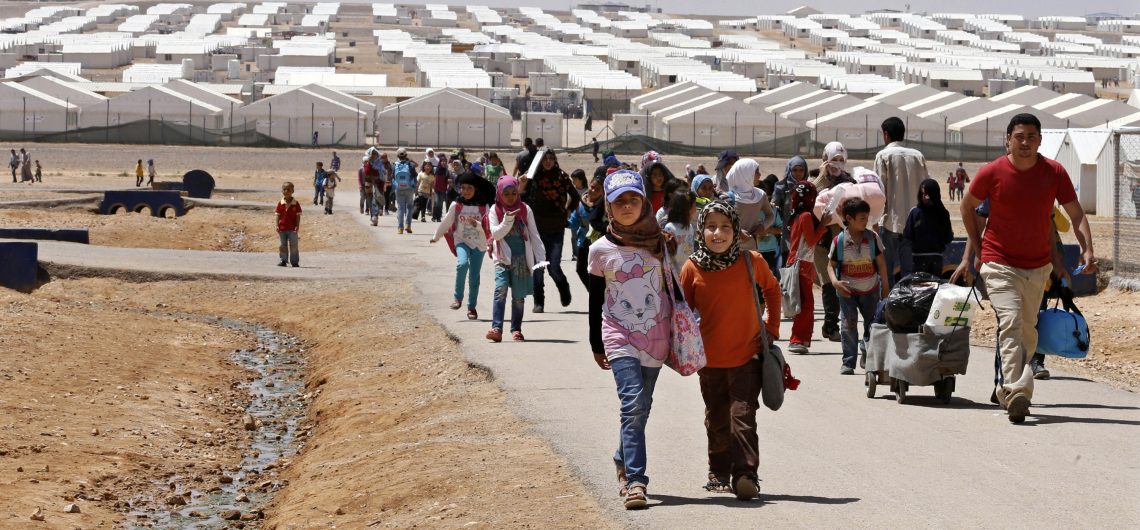
On March 24, 2019, the US-backed Syrian Democratic Forces (SDF) announced the capture of Baghouz, a .....
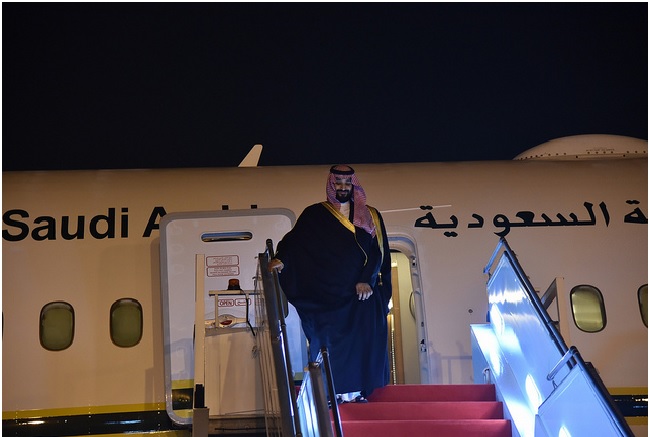
The visit of Saudi Minister of State for Foreign Affairs Adel al-Jubeir to New Delhi; close on the h.....
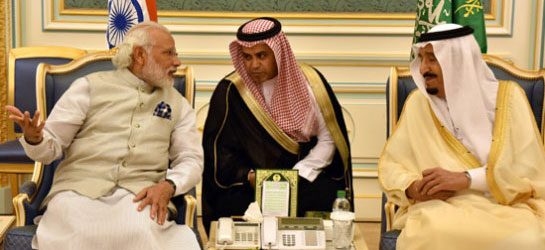
India and Saudi Arabia have increased defence and security cooperation in the fields of combating te.....
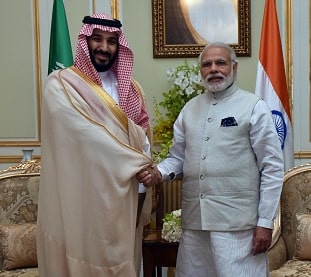
Economic and social reforms have emerged as the focus area in Saudi Arabia under the leadership of K.....

The US and Turkey are back on collision course over the Kurdish question in northern Syria. The late.....

The Civil War in Syria has ravaged the country, took the life of nearly 500,000 people and has force.....

